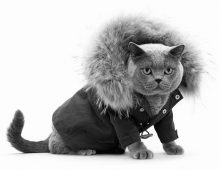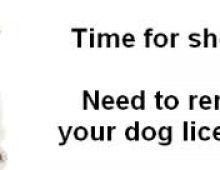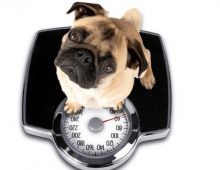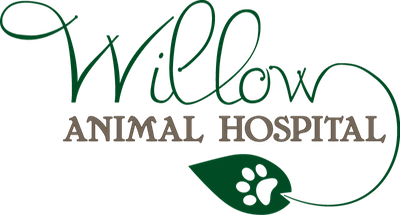Category Archives: tips
I miss you, my friend...
It is completely normal to feel devastated when your beloved pet dies. Everyone grieves differently, so here are some tips to help with your loss.
•The grieving process happens gradually so be patient with yourself and allow yourself to heal at your pace.
•It is normal to feel sad, frightened or lonely in response to the loss of your pet.
•Do not ignore your pain as this will make it worse in the long run. Talk to others about what you are feeling. Professional help is often a good option.
•Reach out to others that have lost pets (online message boards, pet loss hotlines, pet loss support groups).
•Rituals like holding a funeral for your pet can be very helpful for closure and a chance to share feelings with your family members.
•Creating a legacy for your pet can be a way to help remember the fun and love you shared with your pet (ex. preparing a memorial, planting a tree, making a scrapbook of pictures).
•Maintenance of your normal routine will make it easier for you and any other remaining pets. Dr. Sarah Myers, Willow Animal Hospital
(photo courtesy of: www.k9ofmine.com)
Baby, It's Cold Outside!
Its cold weather season! For outdoor pets, adopt the following rules to keep them safe during subzero temperatures:
•Provide a shelter to escape the cold that is clean, dry and insulated (garage, shed, kennel)
•Avoid abrupt temperature changes like bringing pets into a heated facility and then back out into the extreme cold as this can put them more at risk for certain infectious diseases
•Keep your pets dry with regular bedding changes, removing wet blankets or covers, and providing a shelter to avoid getting wet in the first place
•Use a heated water container and check it regularly to ensure there is plenty of liquid water available
•Increase feed by about 10-15% in order to help pets tolerate the cold stress
•Take caution with the products you use to help melt ice and snow as they can be irritating to pets’ feet or GI tract when ingested. Look for pet safe salts or avoid use when possible.
•With outdoor cats and wildlife in the area, make sure to tap on your hood before starting the car to make sure they are not cuddling up next to the heat of the engine
•Keep your pet away from lakes and ponds in the area that could have thin ice
Dr. Sarah Myers, Willow Animal Hospital
(photo courtesy of: theforumnewsgroup.com)
2016 Vaccination Clinics
Our vaccination clinics offer a closer-to-home option for keeping up on your dog or cat’s routine vaccinations. We visit Oulu, Port Wing, Cornucopia, Maple, Brule, Mason and Mellen annually (just in time for dog licensing). Stop by for annual heartworm and tick-borne diseases testing/prevention, internal parasite treatment/prevention, and discounted vaccinations for your faithful pets!
See our website for more information about dates, times and locations. (photo courtesy of: www.lakewood.org)
I'm just fluffy!!
One of the most common medical condition we see in our domestic dogs and cats is obesity. Certain medical conditions can contribute to obesity, like hypothyroidism (low thyroid levels) and hyperadrenocorticism (high blood cortisol levels). Obesity can make certain medical conditions more likely and difficult to manage. Most of our pets simply need a diet change in order to prevent obesity. Here are a few diet tips to help prevent obesity in your pet:
• Start thinking about weight management when your pet is young. It’s much easier to keep your pet at a healthy Body Condition Score (see links below) than to lose weight later.
• Feed your pet a quantity of food that maintains a good Body Condition Score, not the amount listed on the back of your food bag. Depending on your pet’s activity level, most feeding chart guidelines will lead to overfeeding and obesity.
• Feed your pet meals of specific and consistent amounts. Free feeding your pet as much as they are willing to eat very often results in overfeeding and obesity. When you know exactly how much they are getting you can then monitor for changes in their Body Condition Score and make appropriate adjustments to fit their needs.
• The amount of food your pet needs will change over time, so make adjustments in order to maintain a good Body Condition Score. Feeding needs will often decrease as pets become aged, after getting spayed or neutered, in hot environments, and when pets are less active.
• Visit these links to learn about how to evaluate Body Condition Score in your pet.
Dogs: http://www.petmd.com/sites/default/files/bcs-dog.jpg
Cats: http://www.petmd.com/sites/default/files/bcs-cat.jpg
Dr. Sarah Myers, Willow Animal Hospital
(photo courtesy of: petattack.com)
Allergies?
Do you think your pet has a food allergy? Food allergies can cause both allergic skin disease and gastro-intestinal problems. Symptoms of allergic skin disease include scratching or licking the skin which can result in poor coat quality, hair loss and skin infections. Gastrointestinal symptoms of food allergies in-clude vomiting and diarrhea. Diagnosis of a food allergy involves consultation with your veterinarian and a food allergy elimination diet trial. Dr. Sarah Myers, Willow Animal Hospital
(photo courtesy of: expertbeacon.com)
What is Lepto anyway?
Leptospirosis is a potentially fatal bacterial disease that can cause a very sudden onset of kidney and liver failure in dogs. It is transmitted through urine from infected mammals – often wildlife. Dogs that are at highest risk are those that drink water sources that could be contaminated with wildlife urine. Prevention of this disease is possible with a two shot initial series followed up by an annual vaccine. Leptospirosis is a zoonotic disease, meaning it can be spread from animals to people. Therefore, keeping your pets safe from the disease will help to prevent transmission to your family too. Dr. Sarah Myers, Willow Animal Hospital
(photo courtesy of: www.playbuzz.com)
Independence Day Tips
Happy 4th of July! As you enjoy the festivities remember to keep your pets’ safety in mind. The stressful noises of parades and fireworks can be a major source of stress for your pets. Make sure they are secured in a safe place or on a secure leash during parades and fireworks. The loud noises from the festivities can often scare pets enough that they run away and become lost. If your pets’ stress is severe schedule an appointment with your veterinarian to discuss medication options that may help to calm them. Dr. Sarah Myers, Willow Animal Hospital
(photo courtesy of: www.seesamsit.com)
Eh? What's that? Speak up!
Ear infections are one of the most common infections seen at a vet clinic. Clues that your pet might have an ear infection include head shaking and ear scratching with increased frequency. Sometimes just a bad odor or lots of debris in the ear is the main symptom. Ear infections can become severe the longer they are present causing hearing loss or head tilts from inner/middle ear infections. Prompt treatment is important so contact your veterinarian if you are concerned about an ear infection right away! Dr. Sarah Myers, Willow Animal Hospital
(photo courtesy of: prospectparkanimalclinic.com)
Kids & Pets
Did you know that pets can transmit some infections to people? These types of transmissible conditions are called zoonotic diseases. With good preventive care risk is extremely low. Intestinal parasites are one of the most common zoonotic diseases we see in pets. We recommend monthly preventive deworming products to prevent your pets from getting intestinal parasites. Preventing your pets from getting these infections is the first line of defense in preventing transmission to your family. Schedule your pet’s annual exam to learn more about which product is best for your pet! Dr. Sarah Myers, Willow Animal Hospital
(photo courtesy of: topicnow.info)
Happy Easter!
Happy Easter! Remember that the tasty chocolate treats we love so much on this holiday can be toxic to your pets. In general, avoid feeding any chocolate to your pet but if they do get into it—how much is too much? Here is a tip to live by: the darker and more bitter the chocolate, the more toxicity risk. With milk chocolate more than 0.5 ounces per pound and with dark chocolate more than 0.1 ounces per pound can result in toxicity. Mild signs of toxicity include vomiting and diarrhea while more severe signs include heart arrhythmias, tremors, seizures even collapse. Contact your veterinarian if you are concerned about chocolate ingestion with your pet! Dr. Sarah Myers, Willow Animal Hospital
(photo courtesy of: askthepodcastcoach.com)















